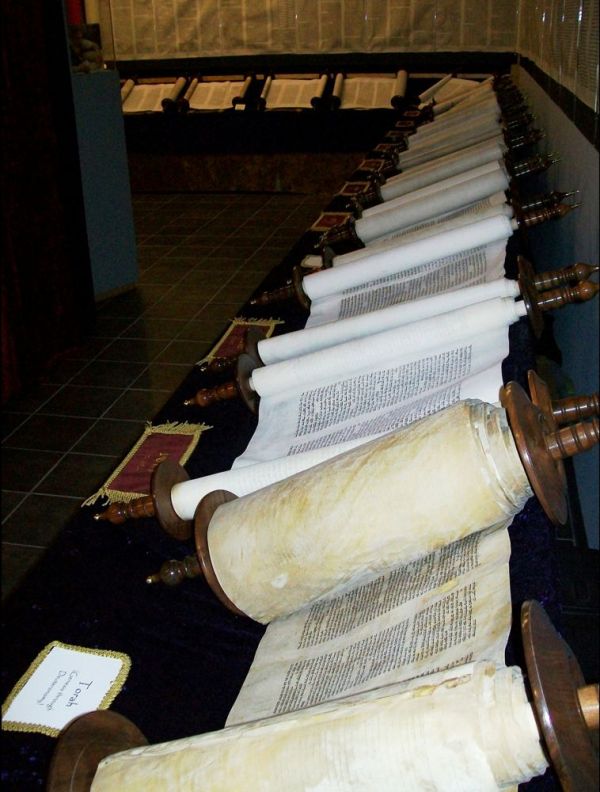(Mk 10:46-52)
Mark 10:46 And they came to Jericho. And as he was departing from Jericho with the disciples and a large crowd, Timothy's son Bartimaeus, who was blind, was sitting by the roadside begging.
Mark 10:47 When he heard that Jesus of Nazareth was there, he began to cry out and say, "Son of David, Jesus, have mercy on me!"
Mark 10:48 Many rebuked him to keep him quiet, but he cried out louder, "Son of David, have mercy on me!"
Mark 10:49 Then Jesus stopped and said, "Call him!" And they called the blind man, saying to him, "Take courage! Get up, he is calling you!"
Mark 10:50 And he threw off his cloak, and leaped up and came to Jesus.
V. 46 frames the scene of the encounter between Jesus and Timaeus, a contracted name that was supposed to be "Timothy", i.e. "the one who honours God". This is a Greek name given to a Jew, which tells how profound the Hellenisation of Palestine was.
The same verse opens with a geographical note: Jesus' party, with his disciples and the crowd, enters Jericho and immediately leaves. A strange way to behave, since Jericho, as the last station before the long ascent to Jerusalem, was generally a place to rest and refresh oneself before ascending to Jerusalem. A very crowded and noisy city if one thinks of the comings and goings of priests and Levites going up and down from Jerusalem for the Temple service or taking turns in the weekly service. A city where pilgrims were coming up or down from Jerusalem. A city, therefore, very busy, rich, sumptuous, well-to-do and hospitable, but Mark emphasises in the opening of his account how Jesus enters and immediately leaves it, thus giving Jesus' journey towards Jerusalem a strong acceleration, leaving behind a world that belongs neither to him nor to those who have decided to follow him. But it is precisely on this road that one finds a blind man, Timaeus, who "sat by the wayside".
The verb 'to sit' is placed in the imperfect tense, a tense that indicates the persistence of that sitting of the blind man, who despite being on the same road as Jesus, the one leading to Jerusalem, in fact did not follow him, because he 'sat'. But it is precisely on this road that the decisive encounter takes place.
V. 47 presents two titles of Jesus, the first of which is the one by which he was known to the people: Jesus of Nazareth, a Jesus known by his historical origins and geographical provenance. But in Israel, a long tradition had formed, stimulating expectations, hopes and fantasies around the mythical figure of the Davidic Messiah. It was a matter, however, of recognising him and adhering to him existentially, thus believing that the promise that God made to David through the prophet Nathan had been fulfilled in Jesus. And this is what the blind man of Jericho will do.
In fact, Timaeus, upon learning of Jesus on the road to Jerusalem, did not hesitate to invoke him as the Davidic Messiah: "he began to cry out and say" and, therefore, to openly give his testimony of faith in the messianism of Jesus: "Son of David, Jesus, have mercy on me". An act of faith in Jesus' messianism, against everything and everyone.
The blind man's testimony about Jesus, in the form of an invocation, is transformed into an encounter with Jesus, a salvific experience, which will radically change the life of this blind man, since Jesus, seeing his faith, calls him to himself. Here we are faced with a call to follow. Mark, in v. 49, repeats the verb "to call": "call him", "they called him", "he calls you". Significant is that reminder: "Courage! Get up, he is calling you". A pressing invitation to get up from his blind condition, a metaphor for the non-believer, to answer Jesus' call. A sort of prelude to what will happen in v. 50: "He threw off his cloak, leaped up and came to Jesus". The cloak, like clothing in general, in the language of the evangelists is a metaphor for the condition of one's life. This "throwing off his cloak" indicates, therefore, the abandonment of his former life, that which had made him blind, in order to access Jesus; and he does so by "leaping to his feet", almost a kind of resurrection, the beginning of a new life. Notice how he was not accompanied to Jesus, as one would expect for a blind man, but went to Jesus on his own, because he was enlightened by faith. An approach to him, therefore, dictated by his faith, certainly still incipient, since he sees in Jesus only the son of David, the fulfilment in him of a promise, a passage therefore from Judaism to Christianity, but the road to reach Jesus, as Messiah and Son of God, is still long, and it will be necessary to arrive beneath the cross to hear him proclaim: "Truly this man was the Son of God!" (Mk 15:39).
Argentino Quintavalle, author of the books
- Revelation - exegetical commentary
- The Apostle Paul and the Judaizers - Law or Gospel?Jesus Christ true God and true Man in the Trinitarian mystery
The prophetic discourse of Jesus (Matthew 24-25)
All generations will call me blessed
Catholics and Protestants compared - In defence of the faith
(Buyable on Amazon)




